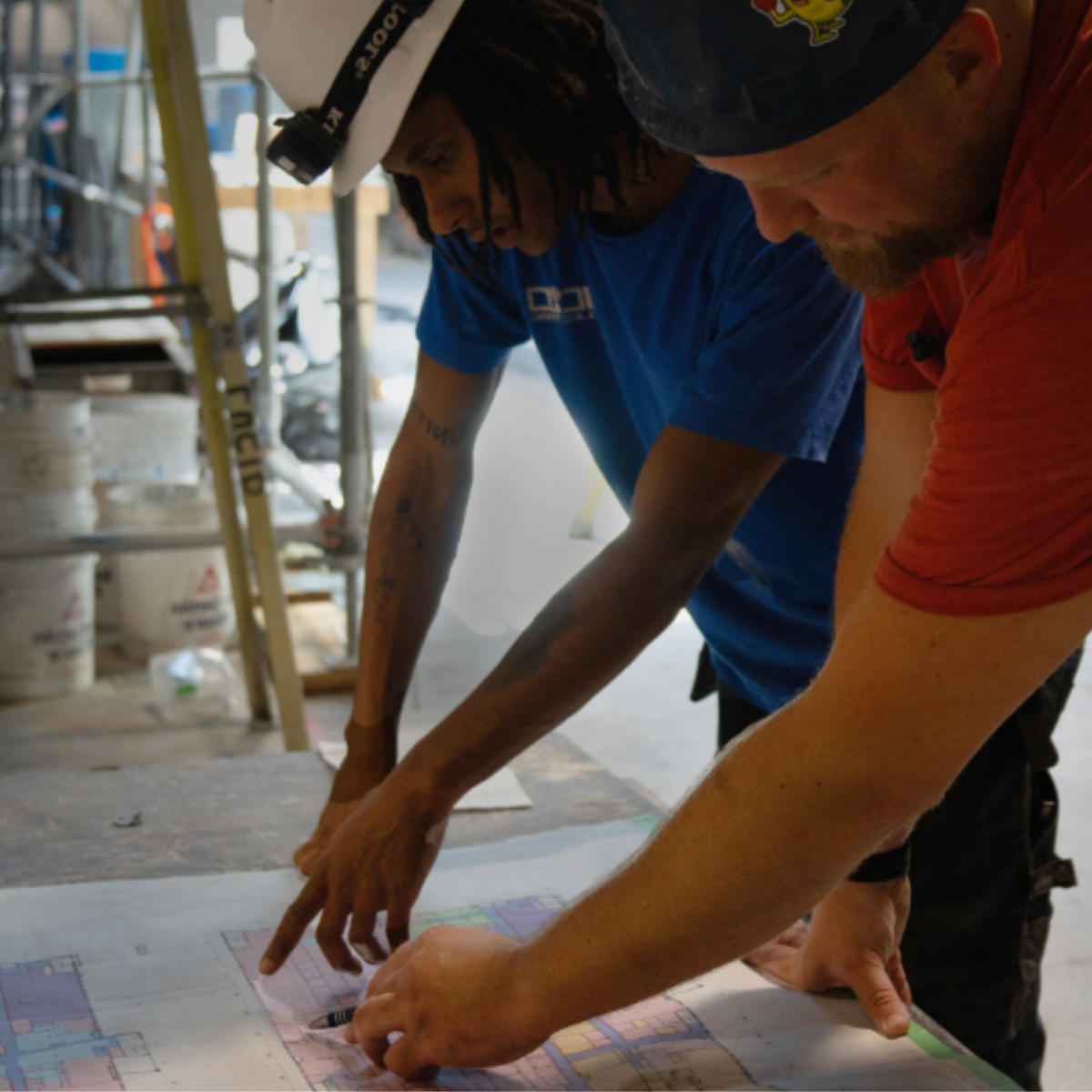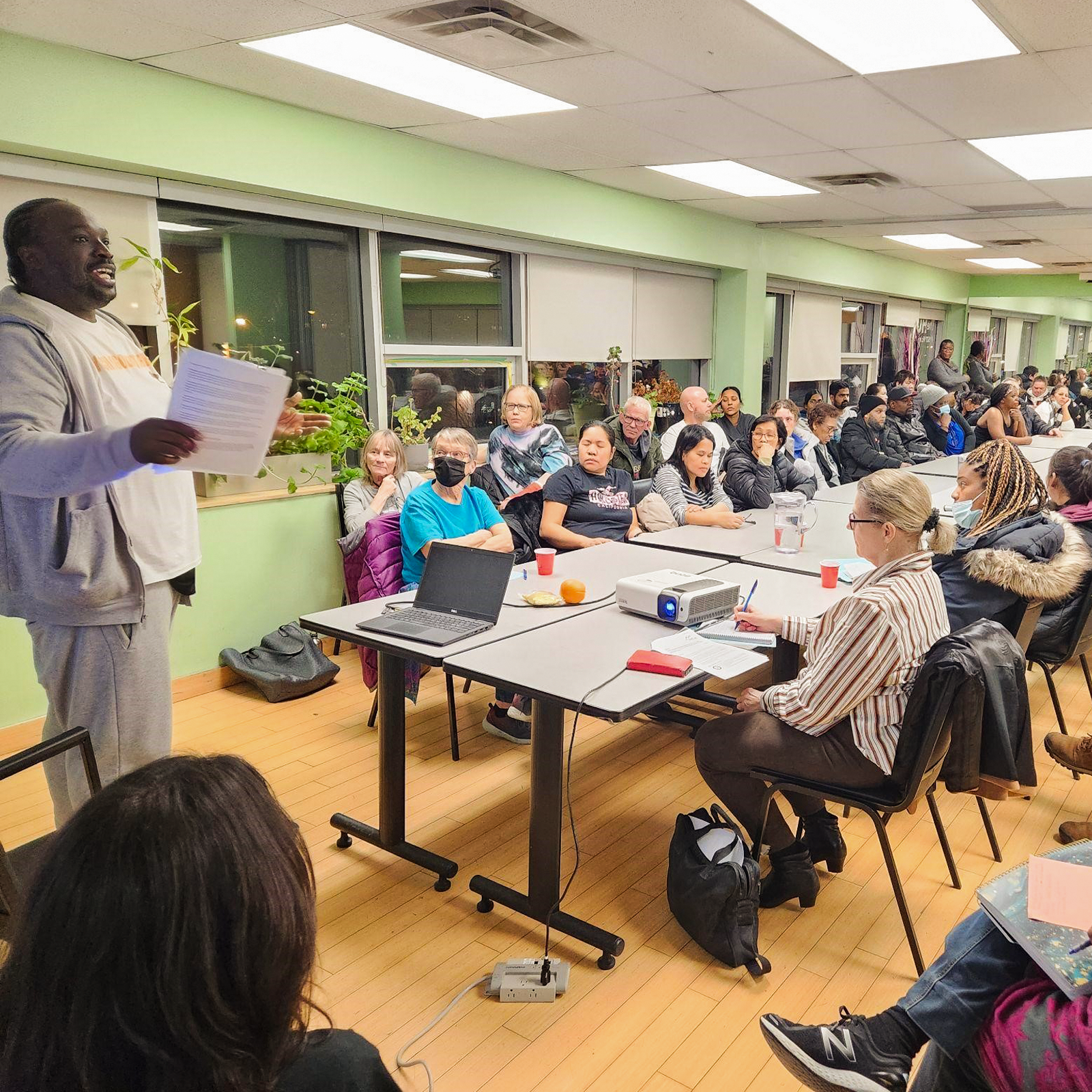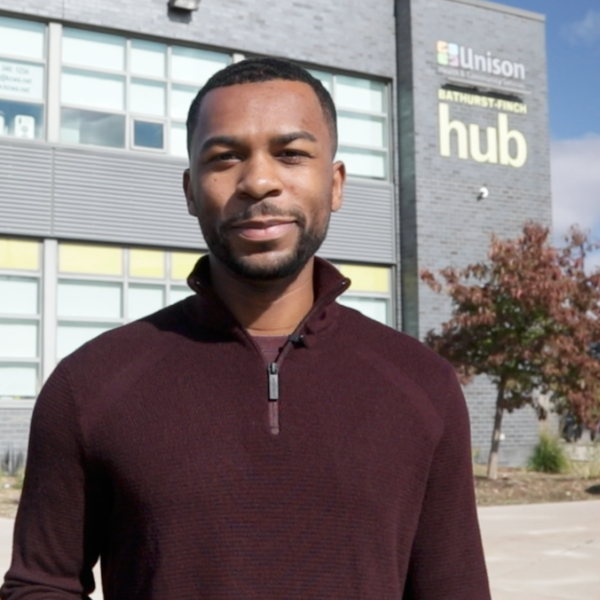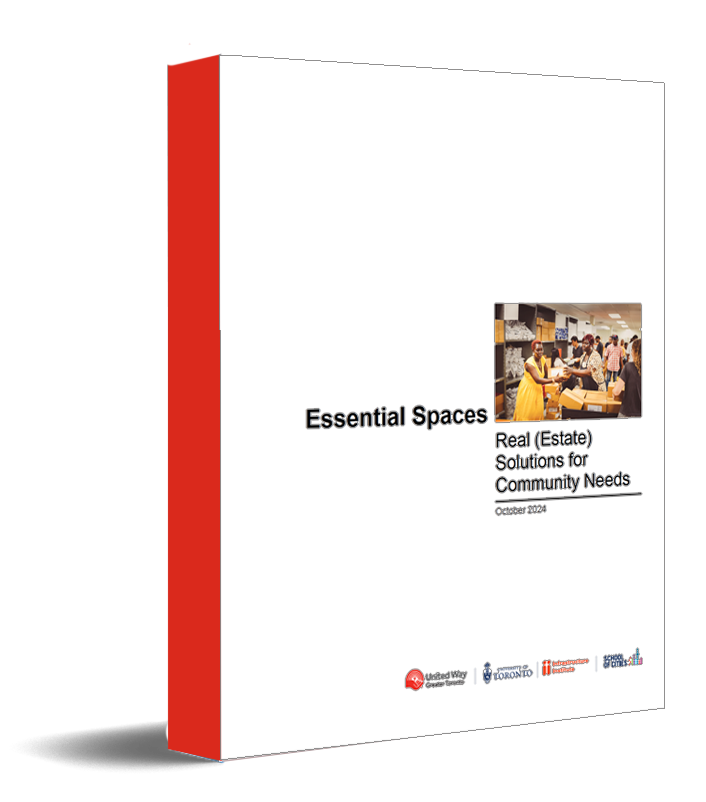Strong communities need community spaces. That’s why we’re making sure the organizations that bring people together and provide social services stay rooted where they’re needed most. Any way we can.
Building on decades of neighbourhood-focused work, our Community Real Estate Initiative helps not-for-profits secure stable, long-term space and strengthen and expand community programming, so they can continue meeting local needs now and into the future.
Rising rents are threatening the community organizations people rely on
The affordable housing crisis doesn’t just impact individuals and families — it’s putting community organizations at risk, too. Faced with high rental costs, organizations that provide food banks, shelter, job training and health services are struggling to stay open.
United Way Greater Toronto’s report, Essential Spaces: Real (Estate) Solutions for Community Needs, reveals that 65% of community service agencies in the GTA included in the study lease their space, with costs climbing as much as 88%.
This is forcing organizations out of the neighbourhoods that rely on them — at a time when one in four families in our region lives in poverty. Even agencies that own their space often do not have the resources to expand services or keep up with skyrocketing demand. And with our population projected to hit nine million by 2035, the need will only grow.
Protecting community spaces isn’t optional. That’s why keeping the right infrastructure in place to support growth is a cornerstone of our bold, 10-year strategy for more resilient neighbourhoods.
Ensuring community spaces are there when people need them
United Way’s Community Real Estate Initiative aims to take vulnerable organizations out of the precarious commercial market by helping them secure more stable, non-market spaces. We provide agencies with the guidance, tools and financial support they need to navigate real estate decisions.
The result? Agencies gain stability and resilience. They’re protected from rising rents. They can break free from restrictive lease agreements and shape their space to better serve communities. Most importantly, they stay rooted close to home, delivering vital services that reduce poverty and build a stronger GTA.

THE ONLY BARRIERS
WE SUPPORT HAVE FOUR WALLS
AND A ROOF
Community Real Estate Investments
Grants, capacity building, and Community Hubs. These are the tools that make up our Community Real Estate Initiative and they are already at work, future-proofing our region by securing and stabilizing community space for the long term. Learn more about the projects underway and the impact they are having near you.

COMMUNITY HUBS
We are developing more Community Hubs, where services come together under one roof, and agencies can pool their resources.

GRANTS
We’re supporting agencies with grants to help cover pre-development costs.

CAPACITY BUILDING
We’re equipping agencies with the guidance and training they need to navigate real estate development projects.

Stefphon Nibbs, Director, Community Infrastructure, United Way Greater TorontoCommunity real estate is the foundation of the community services sector. Without secure, sustainable and resilient community service spaces, agencies ability to deliver services and peoples abilities to access them are increasingly precarious, at time when the demand for human services and support continues to increase to unprecedented levels in the GTA.

Join us in investing in the places and spaces that build community — and a stronger GTA for years to come.
Learn more
January 03, 2025
Strong neighbourhoods need community spaces
As rising costs threaten the future of community service organizations, United Way launches new strategy to protect community spaces across the GTA.
November 15, 2024
United Way Greater Toronto moves into social purpose real estate
With some agency spaces in precarious spaces, the response is aimed at providing long-term stability in a region experiencing rapid growth.
February 04, 2025
The affordable housing crisis affects everyone
How United Way is working to champion community real estate amid rising rents and a volatile real estate market.
December 03, 2024
Community spaces: from problem to solution
Last month, United Way Greater Toronto released Essential Spaces: Real (Estate) Solutions to Community Needs. We sat down with Ruth Crammond, Vice President, Community Infrastructure, United Way Greater Toronto, to learn more about the research, its findings, what it means for United Way Greater Toronto – and why it all matters.
October 29, 2024
Championing community space and services: United Way Greater Toronto Announces ‘10 in 10’ Community Hubs with $100 Million Commitment
United Way Greater Toronto (UWGT) is working towards a more equitable GTA for all with the launch of a new Community Real Estate Initiative and the commitment to raise and invest over $100 million. Funds will support the creation of 10 more community hubs over the next 10 years and the development of new pathways for community organizations to acquire secure and sustainable space.
